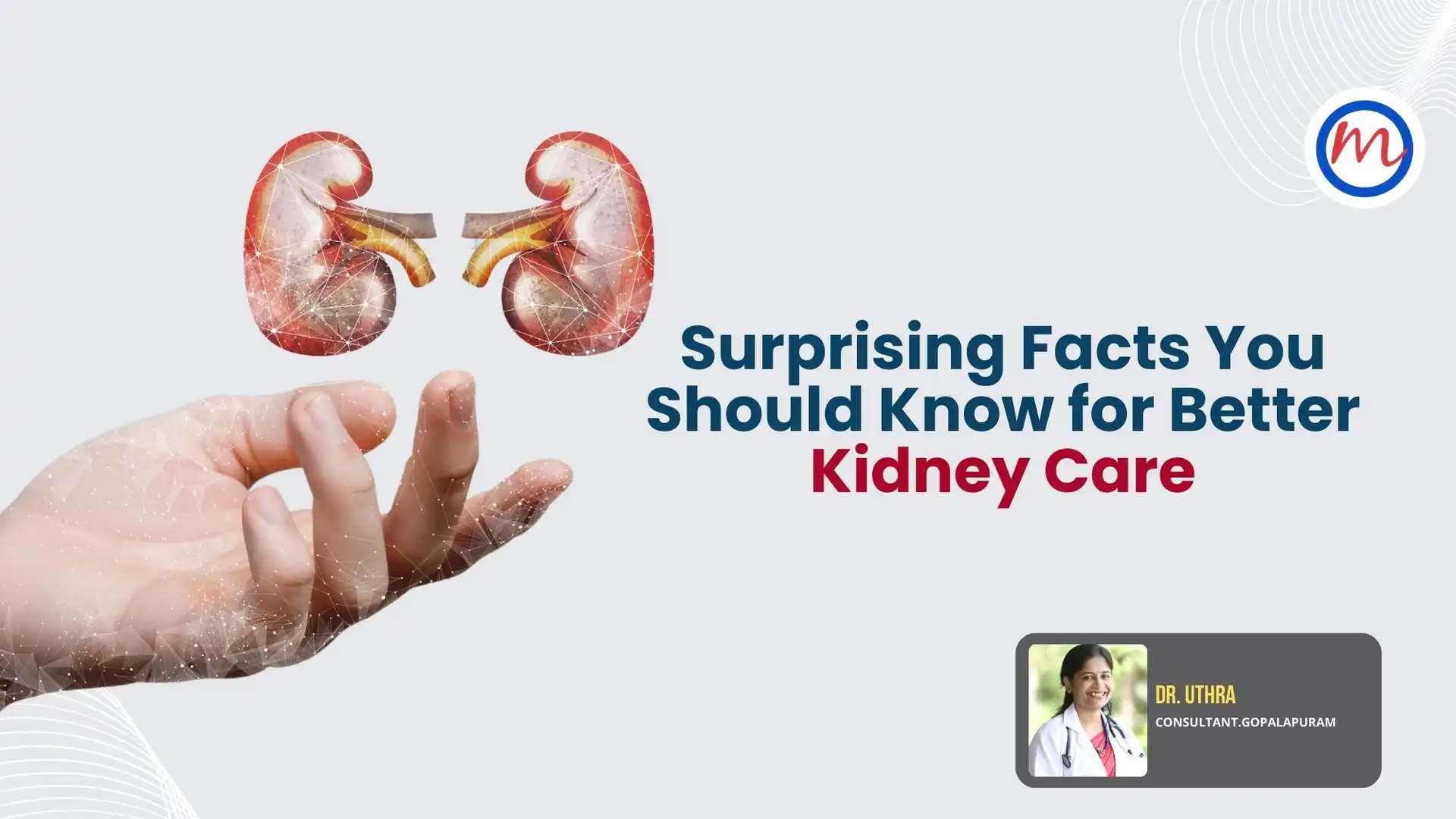12 Surprising Facts You Should Know for Better Kidney Care
Introduction
Kidney diseases are often misunderstood due to the many myths and misconceptions surrounding them. These myths can lead to delayed diagnosis, improper treatment, or even the worsening of conditions. In this article, we uncover the top 12 myths about kidney diseases and reveal the scientific facts that every individual should know to protect their kidney health.
Myth 1: All kidney diseases are incurable
Fact: Not all kidney diseases are incurable. With early diagnosis and proper treatment, many can be cured or effectively managed. In fact, timely intervention can significantly slow down or halt disease progression.
Myth 2: Kidney failure occurs if one kidney fails
Fact: Kidney failure only occurs when both kidneys fail. Many individuals live normal lives with one functioning kidney. Blood tests like serum creatinine and blood urea nitrogen remain normal in single kidney failure, but rise when both kidneys are affected.
Myth 3: Edema always means kidney failure
Fact: Edema (swelling) can occur in some kidney diseases like nephrotic syndrome, even when kidney function is normal. It is a symptom of fluid imbalance and not a direct indicator of kidney failure.
Myth 4: All kidney failure patients have edema
Fact: Edema is common in kidney failure but not universally present. Some individuals, even in advanced kidney disease, may not show swelling, making lab testing essential for diagnosis.
Myth 5: Only males have kidneys located between the legs
Fact: This is entirely false. Both men and women have two kidneys, located in the upper back portion of the abdomen. The confusion often arises due to a misunderstanding involving male reproductive organs (testes).
Myth 6: Everyone with kidney disease should drink more water
Fact: In many kidney conditions, especially when urine output is reduced, water intake must be restricted. However, individuals with kidney stones or urinary infections (and normal function) are encouraged to increase fluid intake.
Myth 7: If I feel fine, I don’t have a kidney problem
Fact: Chronic Kidney Disease (CKD) often presents no symptoms in early stages. Lab tests like microalbuminuria may be the only sign. This is why routine health check-ups are crucial, even if you feel well.
Myth 8: I can stop antihypertensive medication once my BP is normal
Fact: Normal blood pressure is often a result of effective medication. Discontinuing these drugs can result in uncontrolled hypertension, which is a major risk factor for kidney failure, stroke, and heart disease.
Myth 9: I feel fine, so I can skip my kidney treatment
Fact: Many CKD patients feel better during treatment but discontinuing therapy can accelerate kidney damage, leading to early dialysis or transplant needs. Consistency is key to managing kidney health.
Myth 10: Slightly elevated serum creatinine is not a concern
Fact: Even mild increases in serum creatinine can indicate early kidney dysfunction. Prompt evaluation by a nephrologist is essential to prevent further damage.
Myth 11: Dialysis cures kidney failure
Fact: Dialysis is not a cure. It is a life-sustaining treatment that replaces some kidney functions—such as removing toxins and maintaining fluid balance—when kidneys can no longer do so.
Myth 12: Men and women cannot donate kidneys to each other
Fact: Gender does not affect the ability to donate or receive a kidney. The structure and function of kidneys are the same in both sexes, making cross-gender kidney transplantation safe and effective.
Conclusion
Understanding the truth behind these kidney health myths is vital for early diagnosis, appropriate treatment, and better quality of life. If you or someone you know is at risk for kidney disease, consult a nephrologist and stay informed. Don’t let misinformation jeopardise your kidney health
Dr. Uthra
Consultant



